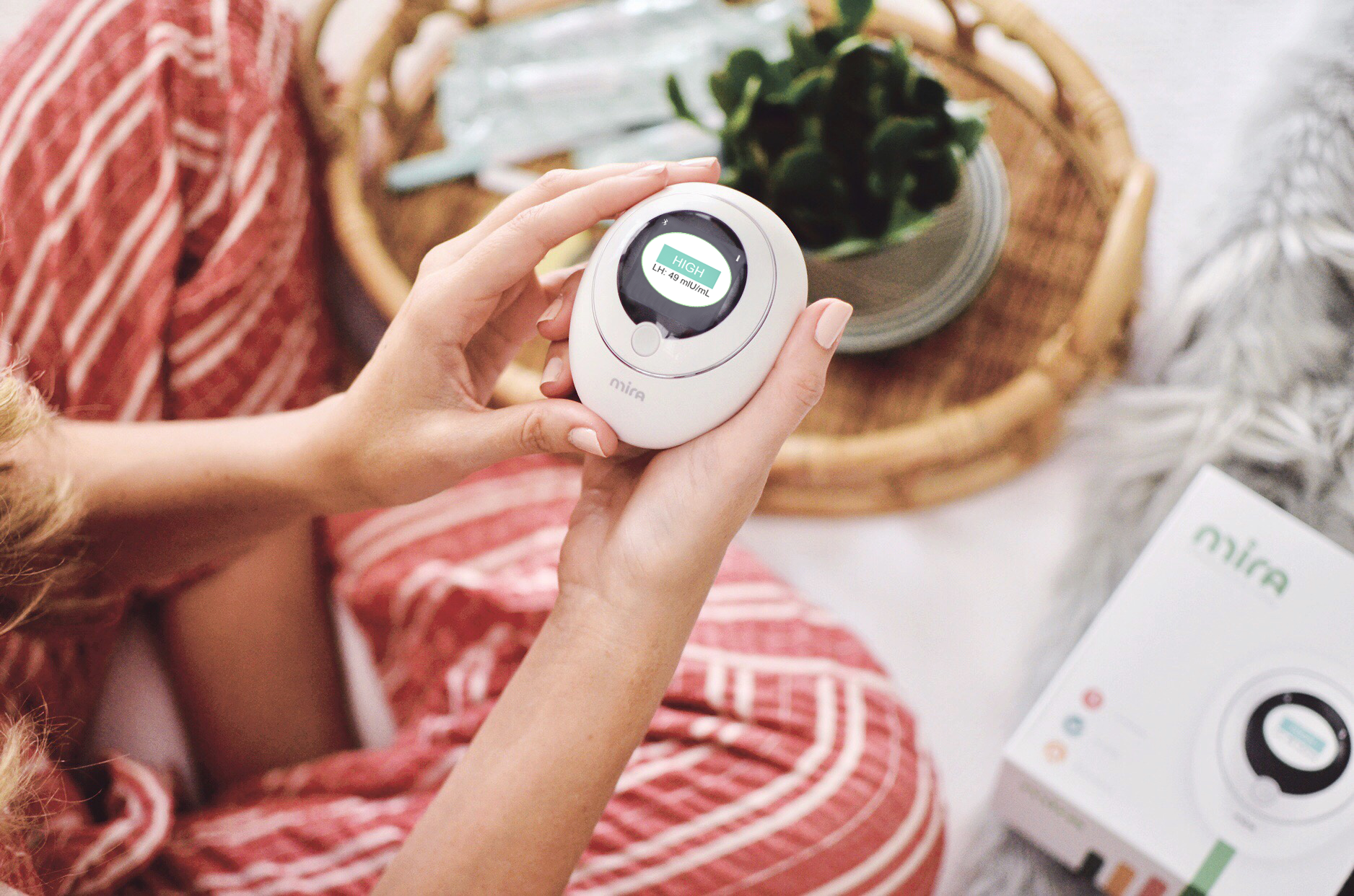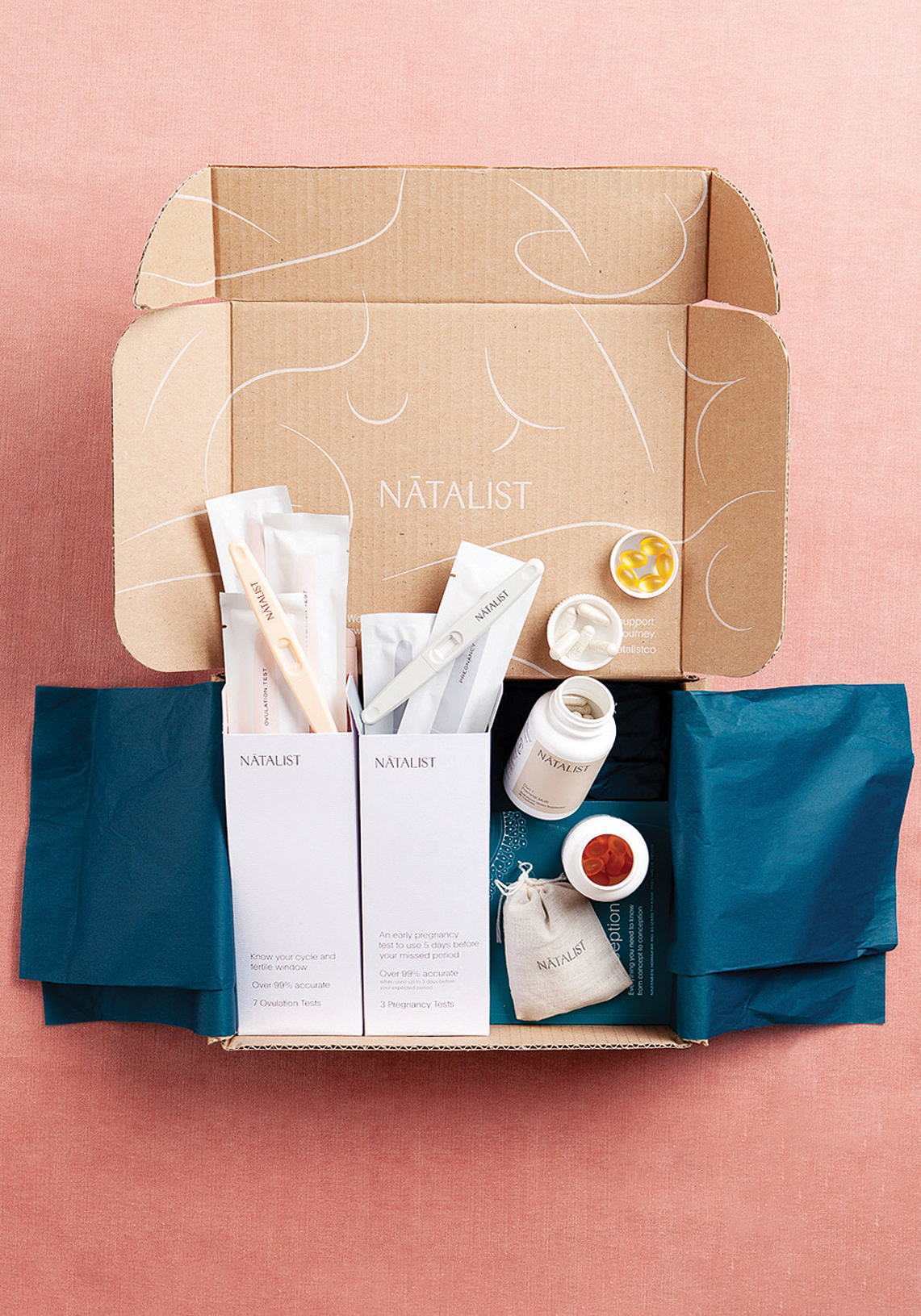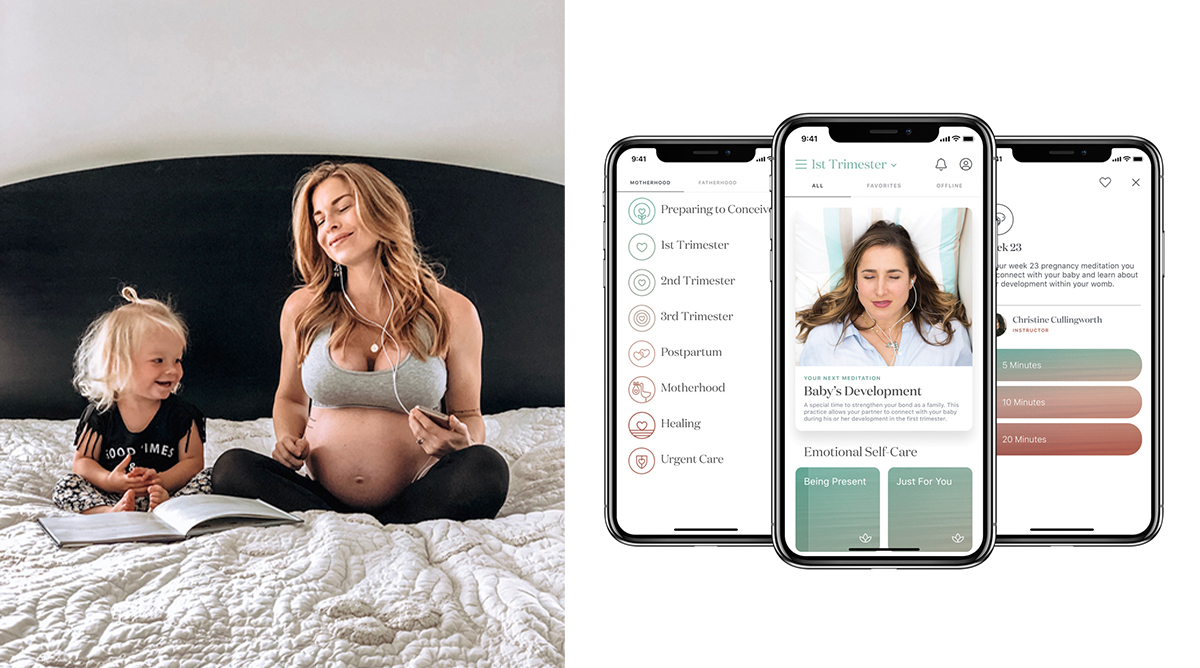The Fertility Boom
As both women and men take ownership of their reproductive health, reproductive assistance, once deemed a luxury, is becoming a crucial part of healthcare.
By Rina Raphael
In the past few years, what was once hushed about in doctors’ offices is now openly discussed. Fertility has entered the mainstream conversation as numerous celebrities—Chrissy Teigen, Kim Kardashian, even Mark Zuckerberg—publicly share their struggles. And it’s grown into a formidable femtech sector, empowering individuals to take charge of their reproductive health.
It’s part of a bigger trend: Women, long underrepresented in medical research and excluded from clinical trials, are increasingly taking ownership of their bodies. They demand more information, more studies and, therefore, more innovation. At its current 8.5 percent annual growth, the global fertility services market is expected to grow to $36 billion by 2023, according to a Market Research Future report.

Fertility is of utmost importance in light of sobering stats. Highly industrialized countries, such as England, Japan and the US, continue to see record-low fertility rates[1]. This stems from a number of reasons, including women of childbearing age delaying having children (or not at all), as well as the continual deterioration of male sperm quality[2].
Plenty of countries also inadvertently incentivize delaying motherhood; In the US, for example, women who reproduce before age 35 never see their pay recover relative to that of their partners. As such, the majority of new moms in the US are over 30, inevitably increasing the need for medical intervention. The Centers for Disease Control and Prevention found that 12 percent of American women of reproductive age now seek fertility treatments.
Society is rethinking reproductive assistance: It’s no longer considered a luxury but a crucial part of healthcare.
LEVERAGING TECH
Silicon Valley is at the center of this trend: A new generation of start-ups tout digital platforms, wearables, apps and modernized clinics to address fertility issues. This spans community support networks such as Peanut Trying to Conceive and the Tinderlike sperm donor matching app Just A Baby. There are even meditation platforms such as Expectful to regulate women’s anxiety and stress, which studies show can affect the ability to conceive.
In 2013, PayPal Co-Founder Max Levchin founded Glow, a female fertility tracking app dubbed “Fitbit for your period.” The high-profile launch paved the way for companies such as Ava and OvaCue to sell ovulation trackers and ovarian reserve tests. Menstrual trackers, like Clue (founded in 2012 with 12 million users worldwide), are now one of the most popular health categories in the App Store.
These palm-size monitors and bracelets measure different physiological signals to predict ovulation windows. (On average, they can detect fertile days at 89 percent accuracy.) Trackers will become more popular as big wearable companies offer such features. More recently, Fitbit introduced fertility tracking on its newest device.

Mira is one company bringing affordable, laboratory-grade testing into people’s homes. It sells an AI-enabled device that pairs with a smartphone app to measure levels of Luteinizing hormone in urine for a more accurate insight into one’s fertility.
“The consumer is looking for something really easy,” says Mira CEO and Co-Founder Sylvia Kang, a former biomedical engineer. “No one wants to take so much time to learn about a product they hopefully only use for a few months.”
Education, comfort and simplicity lie at the heart of many products. Natalist is a monthly delivery box filled with sleek conception essentials for those just starting to consider pregnancy. New Hope Fertility released an at-home IVF kit, which allows women to privately prepare for the egg-retrieval process.

Modern Fertility sells finger-prick tests that gauge reproductive hormones. The female-led start-up also hosts educational seminars called “hormone lunches” at a number of high-profile companies such as Reddit and Slack. It’s reframing fertility as a marker of general health: In the past, women often only examined their fertility when trying to have a family or dealing with a reproductive issue. Modern Fertility encourages consumers to be as proactive about reproductive health as other areas of their wellbeing. That means starting the conversation at a younger age.
“The way that we can make the largest impact is by giving women resources and tools earlier,” stresses Modern Fertility CoFounder and CEO Afton Vechery.
It’s not just women pushed to take action; men are also encouraged to improve their reproductive health. The last year saw an influx of products that measure, track and store male sperm in an effort to curb failing sperm health. A recent Hebrew University of Jerusalem study[3] found that sperm counts among Western men declined by 52 percent in the past 40 years. One-third of all infertility cases are caused by male reproductive issues.
Companies such as YO, SpermCheck and Trak sell discreet at-home sperm health tests. Trak also includes an educational platform to give men actionable ways to improve their sperm quality. Other startups, such as Dadi, offer a sperm storage kit for individuals who want to put off having a family. Their tagline reads: “Men have a biological clock too. It’s time to freeze that seed.”
THE EXPERIENCE MARKET
An emphasis on experience sees the growth of new medical clinics specifically tending to infertility. Unlike their predecessors, these newcomers attempt to bring a sense of humanity, community and design to a highly sensitive journey. Patients might receive a bouquet of flowers and handwritten cards following egg retrieval. They can virtually access nurses and “fertility coaches” 24/7, texting or video-calling whenever need be.
These clinics are also highly ‘grammable: Chicago’s egg-freezing studio Ova boasts a glamorous, boutique-like aesthetic with pastel pink furniture, chic rugs, and fuzzy white pillows. A dramatic lobby chandelier provides soft ambiance, a far departure from hospitals’ harsh fluorescent lighting. Potential clients can learn more about the process during champagne-fueled happy hours or sponsored Q&A sessions held after free group workouts. These new formats feel far more approachable than traditional medical seminars of the past.
Ova joins trendy bicoastal US clinic Kindbody in rebranding egg-freezing as a liberating feminist act, thereby allowing women to plan their future on their terms. To spread the word, Kindbody launched a roaming bus to conduct fertility tests and encourage young women to take family planning more seriously. In December, Kindbody announced it had a total funding of $32 million after an infusion led by Alphabet’s GV (formerly Google Ventures).
The emphasis on experience also extends to finances in an attempt to democratize and simplify access to care. Countries such as Israel provide state-paid fertility treatments, while Denmark leads the way in affordable and widely available assisted reproductive technology (ART). But most, including the US, struggle to address the financial burden.
The average price for a round of IVF in the US is approximately $12,000, but individuals often go through several rounds, hiking the total cost up to $60,000. It’s one of the largest out-of-pocket health expenses millennials face.
This pain point sparked the idea for Future Family, a flexible financing service that includes fertility testing, medical expertise, and a concierge service to handle medical appointments. It offers a monthly payment subscription for clients as well as a “Grandbaby Plan” that permits parents or in-laws to take out a loan on behalf of their son or daughter. It is, of course, meant to appeal to baby boomers eager for a grandchild.
Carrot Fertility offers employers customized benefit plans and a first-of-its-kind flexible fertility debit card. It joins fertility benefits provider Progyny, which works with companies such as Facebook and Microsoft and has raised more than $99 million to date.
“In a relatively short period of time, fertility health has become one of the top benefits that employers are looking at to be competitive in the market with top talent, but also to drive down the overall cost of medical spend.”
— Tammy Sun, CEO and founder, Carrot Fertility
THE NEXT STEP
An entire cottage industry helps consumers navigate all the products and services crowding the market. This influx inherently leads to a fragmented market in which consumers often depend on several different companies to achieve an end goal.
FertilityIQ, hailed as the “Yelp for fertility,” serves as a community-powered resource for treatments, products and clinics. Today, 80 percent of all US fertility patients visit FertilityIQ to read and share reviews, as well as watch video lessons on topics such as surrogacy basics. Site traffic has tripled year over year, with nearly a million unique visitors in 2019.
“It’s an indisputable fact that there is more interest for women to freeze their eggs today than there was even two years ago,” says Jake Anderson-Bialis, co-founder of FertilityIQ. “At the same time, the need for education has never been more acute because there’s a fair amount of confusion as to what [services like] egg-freezing actually accomplishes.”

The egg freezing market is expected to grow 25 percent[4] annually over the next two years but not without criticism. Medical experts stress that such procedures, which see wildly varying success rates, in no way guarantee results.
Doctors and experts, as well as start-up founders, attest to the need for further clinical research. Both Modern Fertility and Ava are taking the lead by pursuing studies to develop better predictors of fertility.
“There are a lot of old claims without much scientific backing,” stresses Lea von Bidder co-founder and CEO of Zurich-based Ava. “We need to work closely with medical providers for solutions that really work for women. We have a huge potential with technology.”
Medical research proves expensive, though Silicon Valley seems more keen to bankroll such initiatives. Modern Fertility is backed by Forerunner Ventures, the fund behind mega-successful brands such as Hims and Glossier. Prelude Fertility, a US-based network of fertility clinics, raised $200 million to target millennials with simplified egg-freezing packages. The newly funded start-up Mojo plans to ensure women receive more precise, less error-prone IVF treatments via AI and robotics technology.
Collectively, femtech start-ups are believed[5] to have secured over $1 billion in investment to date, and of that, 60 percent focus on fertility or pregnancy.
Modern Fertility’s Afton Vechery recalls her experience trying to raise money just two years ago. She struggled to connect with investors, many of whom doubted consumer interest or first needed to “check with” their wives. Today, it’s a far different scenario.
“Now we have investors e-mailing us every week trying to find time to get on the bus,” says Vechery. “It’s really night and day.”
ENDNOTES
[1]Populations, Decreasing Fertility, and Reproductive Health by Niels E Skakkebaek, Niels Jørgensen, Anna-Maria Andersson, Anders Juul, Katharina M Main, Tina Kold Jensen, et al., the Lancet, volume 393, issue 10180, 2019.
[2]Evidence for Decreasing Quality of Semen during Past 50 Years by University Department of Growth and Reproduction, Rigshospitalet, Copenhagen 1992.
[3]Comprehensive Study Shows a Significant Ongoing Decline in Sperm Counts of Western Men, Pointing to Impaired Male Health and Decreasing Fertility, The Hebrew University of Jerusalem, 25 July 2017.
[4]The Costs of Egg Freezing, FertilityIQ Lesson Plan 7.
[5]For Developers, It’s Important to Consider Social Power Imbalances When Innovating by Laura Lovett, Mobi Health News, 3 April 2019.
Copyright © 2019-2020 by Global Wellness Summit.
If you cite ideas and information in this report please credit “2020 Wellness Trends, from the Global Wellness Summit”.
For more information, email beth.mcgroarty@www.globalwellnesssummit.com.


